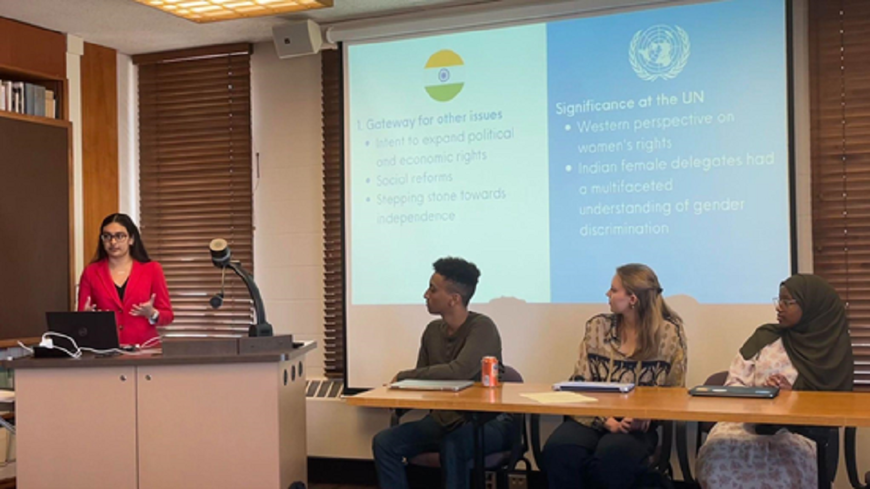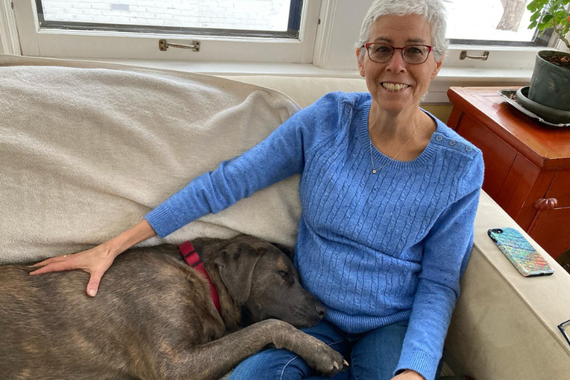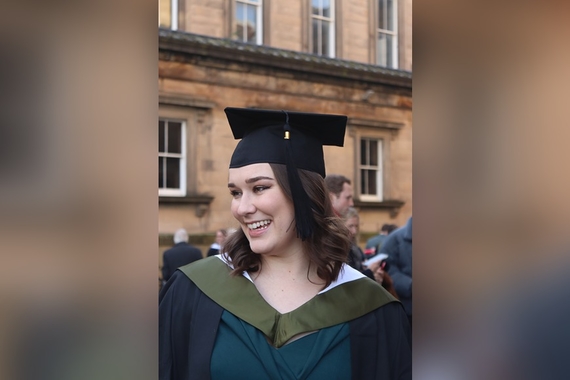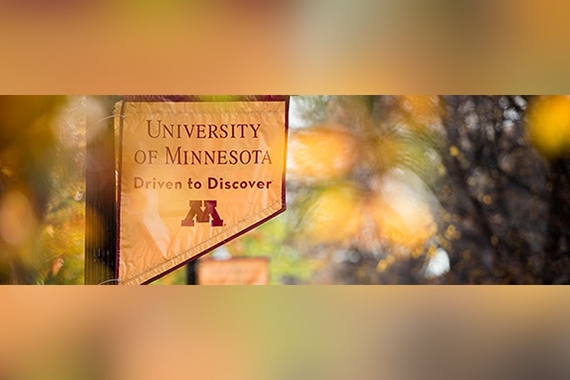Student Research Shines at Ninth Annual Undergraduate Interdisciplinary Conference
The Undergraduate Interdisciplinary Conference returned for its ninth year on April 7, with students from Global Studies and Spanish & Portuguese Studies showcasing their latest research.
The annual conference is an opportunity for undergraduates to experience the workings of a graduate or professional conference. This was the first year the event was held in-person since 2019, so students, staff and faculty alike were glad to gather again.
This year’s conference was composed of student panels focusing on themes from the power of narrative in nation-building to the role of activism in creating a just future for all people. Students presented their academic findings from capstones, courses, supervised research and personal passion-projects. They also answered audience questions and discussed further research.
One of these student panelists was Manasi Nagargoje, a third-year Global Studies major. Her presentation focused on how women’s rights activists in India have had a historically influential role at the United Nations.
Nagargoje conducted this research last summer through the University’s Multicultural Summer Research Opportunities Program (MSROP). She said she was happy when offered the opportunity to participate in the conference because she believes it's important that students are encouraged to do research.
“As undergrads, sometimes I feel like we get the message that ‘you’re not doing really groundbreaking work, you’re just an undergrad,’” Nagargoje said. “But I don’t think that’s necessarily all true.”
Natalie Sartori Wharton, an advisor in the Spanish & Portuguese Department, agreed that the work of these undergraduate panelists was innovative and deserved recognition.
“The scope of what students are studying and how they are approaching the content is super inspiring,” Sartori Wharton said. “I love it.”
In addition to students developing their public speaking skills, the conference was also an opportunity for them to engage with professors and peers.
In the breaks between the presentations, undergraduate panelists and attendees snacked on pastries and sipped coffee while they discussed their studies with faculty from both departments. They also laughed with other students across disciplines during lunch.
The Global Studies academic advisor, Danielle Dadras, said this conversational atmosphere opened the door for students to feel “like they’re in dialogue with professors, rather than being lectured to by professors.”
This setting — which balanced a professional format with casual, supportive conversations — created a sense of community that uplifted students, particularly those studying liberal arts, Nagargoje said.
“Research sometimes in these disciplines like Global Studies, it doesn’t get marked down as a discipline where you can do research,” Nagargoje said. “It’s always ‘oh I work in a lab’ or “I’m crunching numbers’, or things like that. So I think it’s important to have a space where we can encourage people to one: do research, and actually encourage them to share their results in a supportive environment like this.”



